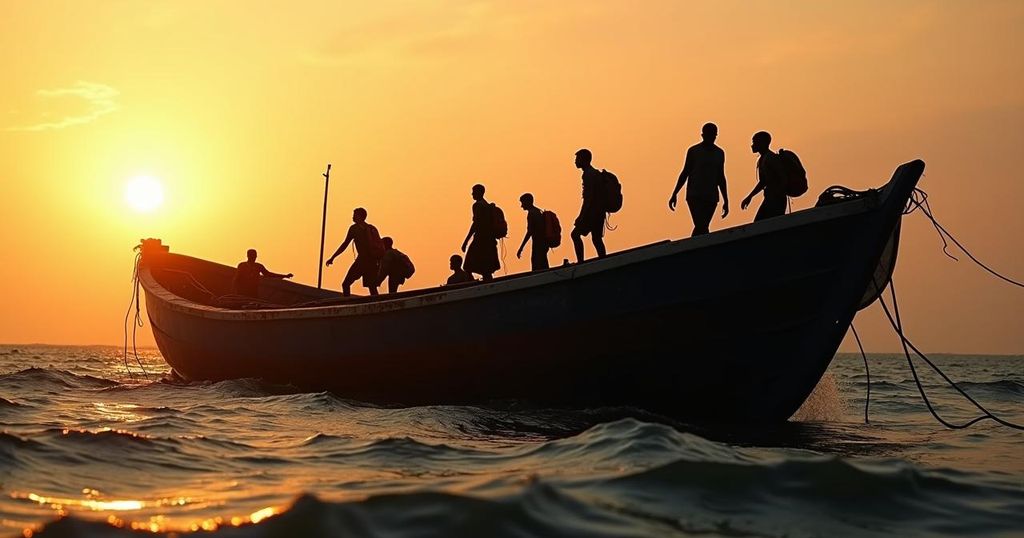A boat capsized in Niger State, Nigeria, leading to 14 confirmed deaths and approximately 150 passengers missing. Authorities attribute the tragedy to overloading and poor enforcement of safety regulations. Rescue efforts are ongoing as locals continue to face risks from unsafe boating practices and climate change.
In a tragic incident that occurred in central Niger State, Nigeria, a boat capsized late Tuesday night, resulting in the recovery of 14 bodies. Authorities have reported that approximately 150 passengers remain missing following this catastrophe, which was attributed to the overloading of the vessel. The Niger State Emergency Management Agency has mobilized rescue teams to search the River Niger for additional survivors. The boat was carrying an estimated 300 individuals returning from a religious celebration in Gbajibo village when it overturned. While around 150 passengers were rescued, there are serious concerns regarding the fate of the remaining individuals. Zainab Sulaiman, the emergency coordinator for Niger State, stated, “Right now, there are 14 corpses that have been recovered, and the local divers are still in the water right now. The boat was overloaded, which is what has been happening. They overload the boats, and, you know, most of these boats are old. So, with the weight of people, sometimes they even carry foodstuff in bags, you see that the boat capsizes or breaks into two.” Boat accidents are prevalent in Nigeria, largely due to poor enforcement of safety regulations concerning load limits and life jackets. Additionally, warnings about late-night water travel are frequently disregarded by local fishermen and commuters. The situation is further exacerbated by the lack of community awareness regarding safety measures. A Niger State official, who chose to remain anonymous, lamented, “As far as I’m concerned, there’s no one using life jackets in Niger State. You know, these are rural areas; they don’t even know what life jackets is all about. So, there’s nobody sensitizing them on the use of life jackets. The state government ought to have procured all these, but there’s none.” Sulaiman has called for stronger law enforcement regarding boat safety regulations, stating, “The regulatory authorities should start to enforce these laws. If they need to send officers there at the boarding point, it will go a long way.” Moreover, the threat posed by climate change has intensified the risks associated with water travel, as Nigeria experiences rising water levels due to extreme rainfall and flooding. The hydrological agency recently indicated that river levels are rising owing to the release of water from Cameroon’s Lagdo Dam.
The issue of boat accidents in Nigeria is often linked to the neglect of safety protocols. Overloading vessels is commonplace, primarily due to the high demand for transportation across waterways in rural areas. Safety measures such as the use of life jackets or adherence to load limits are frequently overlooked. Compounding this issue, local communities often lack education regarding the importance of these safety practices. Additionally, Nigeria’s climate crisis further complicates the situation, as increased rainfall and flooding lead to excessively high water levels that elevate the risks associated with travel on these waterways.
The boat capsizing in Niger State highlights critical issues concerning safety regulations and enforcement in Nigeria’s waterways. With 14 confirmed dead and many still missing, the incident underscores the dire consequences of overloading and a lack of safety awareness among local populations. It is imperative for authorities to intensify their efforts in law enforcement and community education to prevent similar tragedies in the future and address the challenges posed by climate change.
Original Source: www.voanews.com






